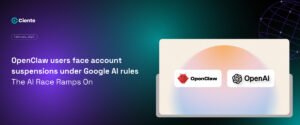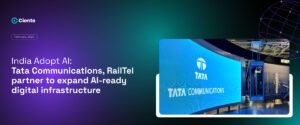Oracle stock is surging after confirming its expanded cloud partnership with Meta. It looks like a mutual win on paper, but what’s the real story?
Diversified compute capacity for AI workloads for Meta. And Oracle has a shot at making a mark in the hyperscaler race. Seems like a mutual win.
This isn’t the whole picture.
Oracle has been a late bloomer in every substantial tech wave. Its core business still leans heavily on databases, not hyperscale infrastructure. So, when Meta chooses Oracle Cloud Infrastructure (OCI), the surface narrative of “a big win for Oracle” misses what it really signifies: a necessity.
Meta needs redundancy.
After public spats with AWS and Microsoft over competition and costs, it’s spreading its AI workloads across multiple providers. Oracle isn’t the option merely because it’s the best. It’s selected because Meta can’t afford dependency.
What does this mean for the AI infrastructure race?
While Amazon, Google, and Microsoft are building the infrastructure of intelligence, Oracle is leasing its excess capacity to those developing it. That’s a respectable business move, while being an innovation.
Oracle Cloud has made strides in price-performance benchmarks, yes.
But Meta’s AI ambitions are orders of magnitude larger than any benchmark can simulate. This deal positions Oracle as a supporting act in the AI ecosystem- reliable, scalable, but not indispensable.
This begs the question- who’s driving whose growth?
The market cheered Oracle’s deal because it craves a fourth player in the cloud. But diversification isn’t disruption. Unless Oracle can translate this partnership into an ecosystem advantage- developer loyalty, AI tooling, or differentiated chip strategy, it risks being remembered as the “safe” option.
And in tech, safety doesn’t scale.
What if Meta is hedging its bets? The cloud market doesn’t reward participation. It rewards creation. Oracle has entered the AI arms race through the back door. Whether it can survive inside is another story



